Cleaning tips for pet owners
Pets bring life into your home. We feed them, care for them and, most importantly, love them. It's easy to overlook the amount of work they create when it comes to cleaning, since a pet not only means more dirt, but also that dirt spreads more quickly and over a larger area in the house. With a few tips and tricks, you can keep your household – plus your pet – clean and tidy.
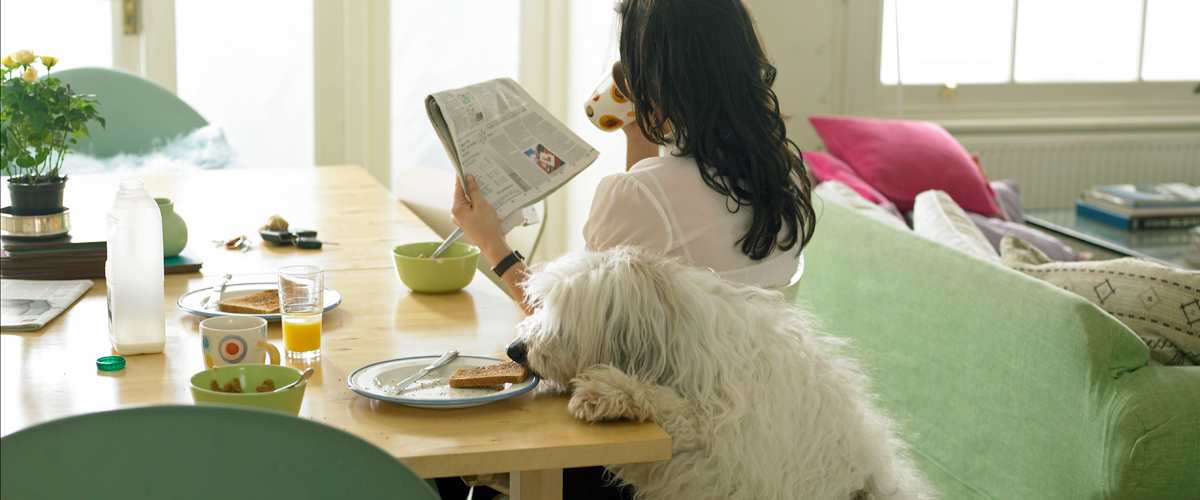
Additional cleaning around the house
Does the dog leave muddy paw prints across the freshly mopped floor? Does the cat love spreading its food around the outside of its bowl? Does the guinea pig scoot about its cage, flinging hair all over the house?
Welcome to a house with pets. It's inevitable that having a pet means more cleaning around the house, meaning more dirt, allergens and potentially disease-carrying germs.
Therefore, cleaning cages, aviaries and pets' favourite places regularly and thoroughly helps ensure cleanliness, as well as hygiene and health protection – for both you and your pet.
Cleaning is the same as with many household tasks: tried-and-tested methods are generally effective and suitable, but the right technology can make work easier and more convenient.
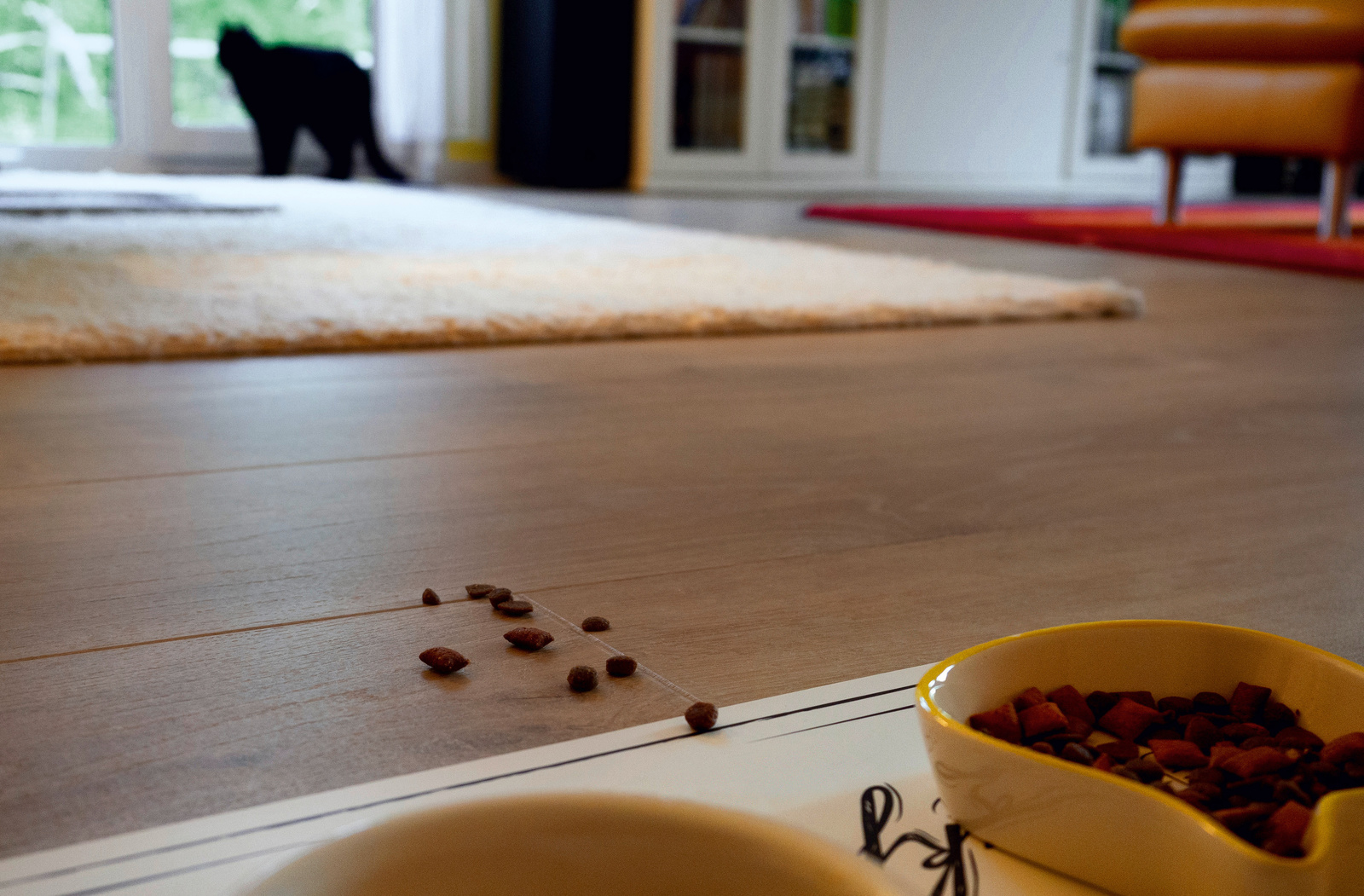
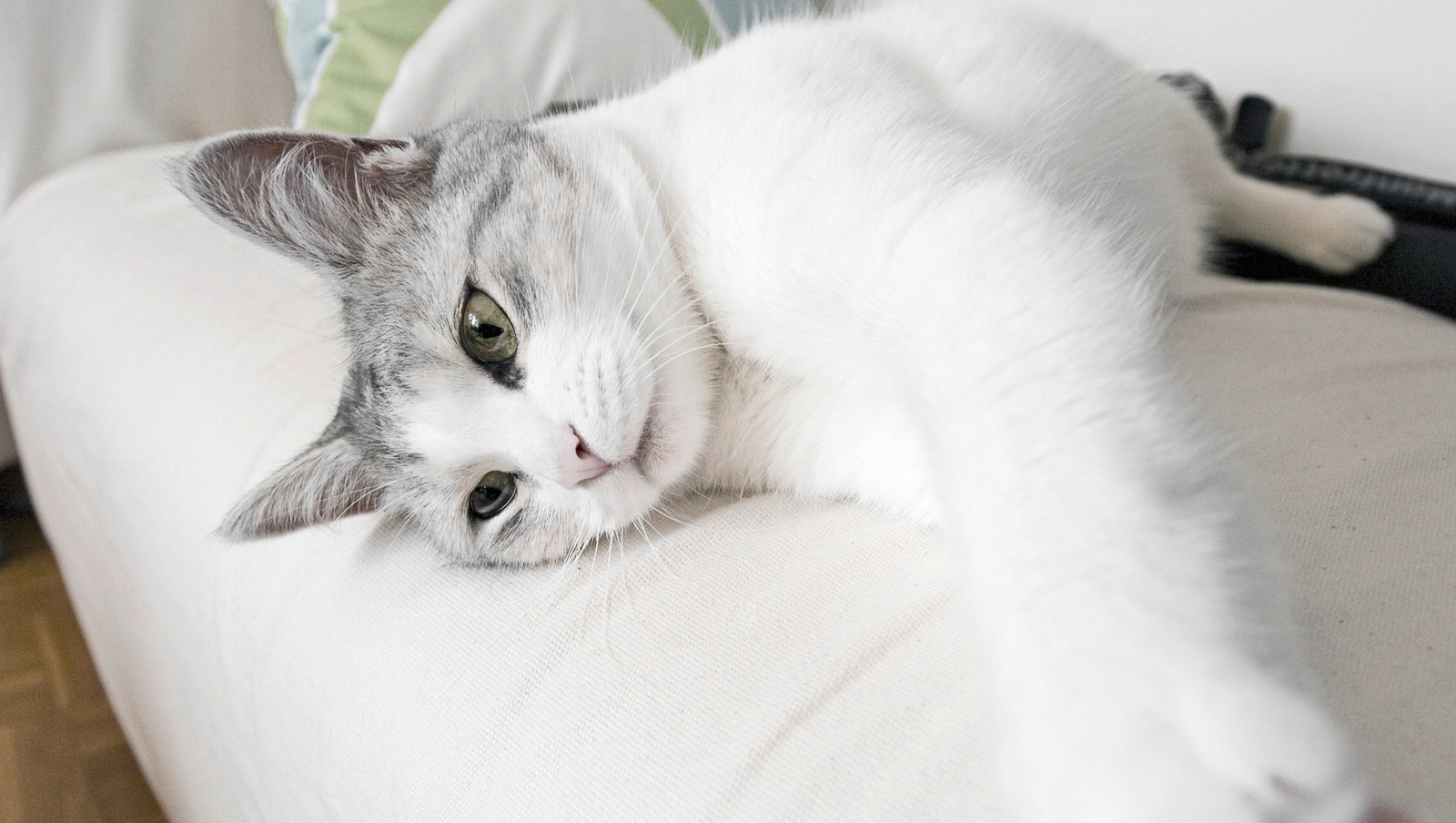
More frequent intermediate cleaning
Life with a dog, cat, guinea pig, hamster or rabbit in the house means that a big clean once a week or even every other week is generally not enough.
Pet hair, food remnants, dirt that has been tracked in, or a little accident with house training can leave you reaching for your cleaning device sooner. Enough time to complete these tasks should be planned into your day.
Much of the dirt is limited to a specific area. Dirt tracked in from outside generally accumulates around the entrance area, hay around the rabbit hutch and cat litter around the litter box when then cat exits or paws at it.
In these cases, it's good to have a dustpan and brush nearby. A handy cordless vacuum cleaner or a lightweight cordless electric broom does the job even better, eliminating numerous instances of light dirt in an instant.
Removing pet hair
Pet hair is most unpleasant when it comes into direct contact with people, such as on the sofa.
A lint roller is useful for removing pet hair from upholstered furniture. A cordless electric broom, however, is practical for tackling pet hair that often accumulates in a particularly stubborn manner on carpets and floor mats.
The electric broom's rotating brush is highly effective in removing dog and cat hair from textile floor coverings. Surrounded by a mesh sleeve, the roller brush can be cleaned easily and reliably afterwards. Removing this sleeve simply scrapes off the hair from the brush.
To reduce the amount of hair that ends up on the floor or furniture in the first place, the animals that share your home should be brushed regularly.
An easy, sure-fire way to "de-hair" clothes, favorite blankets and similar items is in a clothes dryer. Or a piece of sticky tape can also be useful to remove hairs from clothing and upholstery.
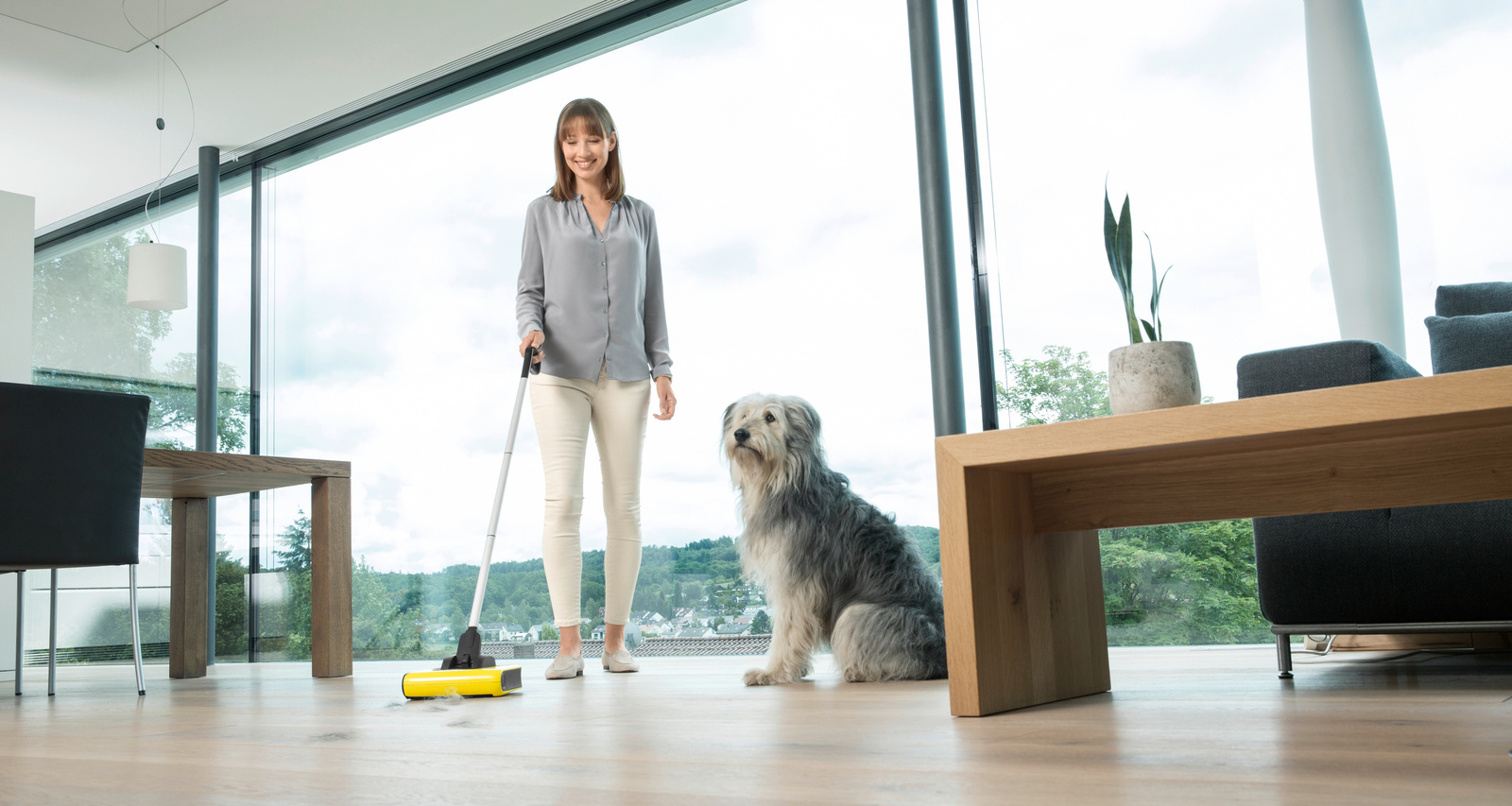
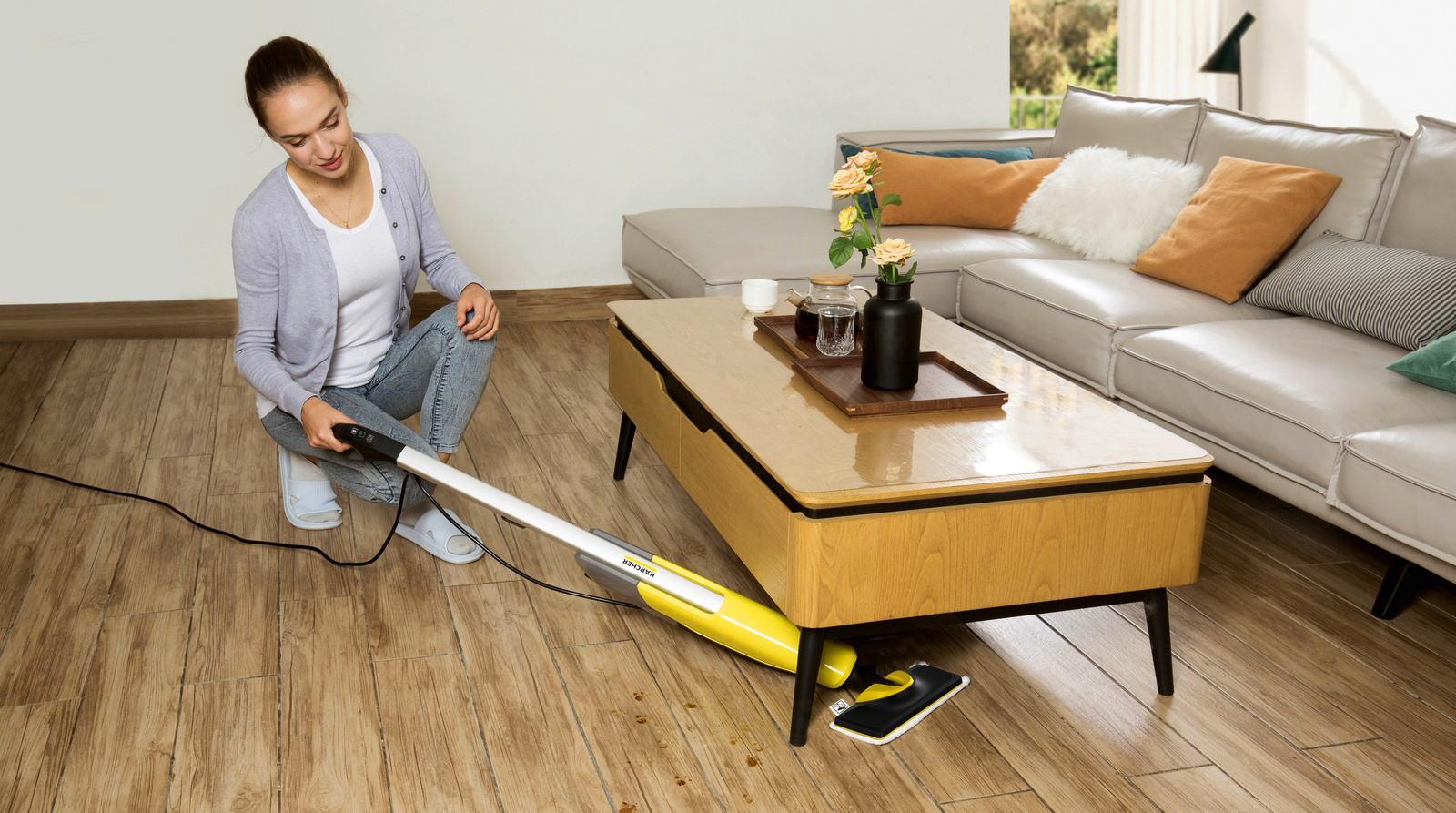
Cleaning hygienically
If you have an animal in the house, your choice of cleaning agent is particularly important. Your four-legged friends may come into contact with detergent residue on floors and other surfaces when eating or playing. Many pets are sensitive to these. Even the odor may cause problems for their delicate noses.
An alternative is to use the steam cleaner for regular cleaning of floors such as hardwood, laminate, stone or tiles, for which no chemical detergents are needed at all.
Hot steam combined with cloths and brush attachments ensure fiber-deep cleanliness. Steam cleaners don't just clean – they also make your living space hygienic and healthy, since they eliminate up to 99.9%* of viruses and up to 99.9%** of typical household bacteria on smooth, hard surfaces. This is particularly crucial around feeding areas.
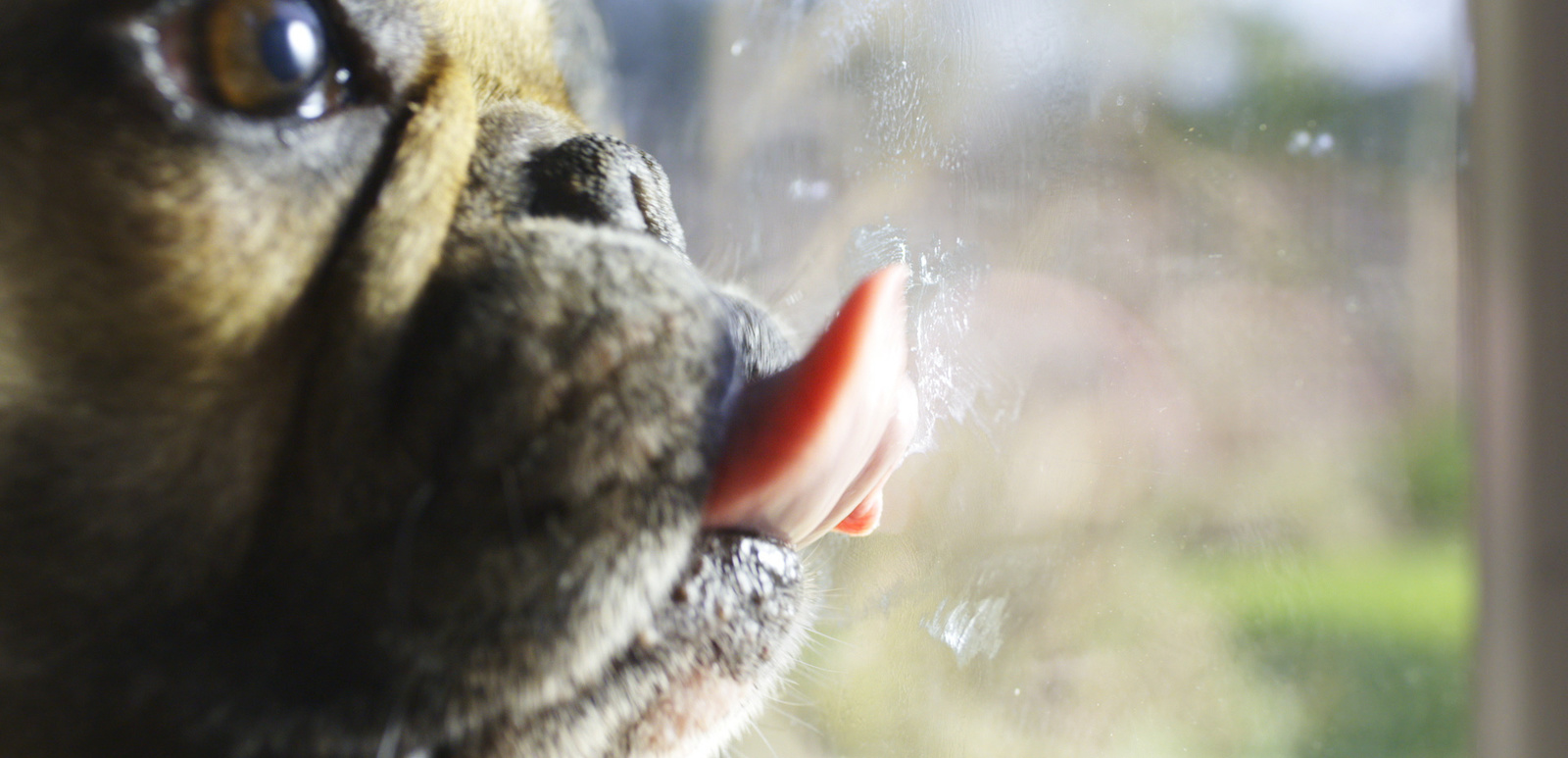
Nose and paw prints on glass and other smooth surfaces
Windows licked by the dog or cat, as well as nose and paw prints on glass and other smooth surfaces, are part of everyday life for pet owners.
Tackling this messy residue may take a lot of time. A Window Vac is a convenient solution for this job: spray on a cleaning solution and distribute it evenly with the microfiber pad on the spray bottle.
Next, suction the whole area in one go with the Window Vac and dry with a microfiber cloth – and watch the paw prints disappear.
Pet doormats
For outdoor cats, and even more so for dogs, there is no such thing as bad weather – they need to get their fresh air every day. But if everything outside is wet and muddy, this inevitably finds its way back into the house later.
You can clean coarse dirt from dogs' paws in the hallway, or put them straight in the shower and then rub them dry. Cats usually won't let you do that! This is where pet doormats can come into play.
It's generally enough to put down doormats, which your four-legged friends have to walk over. This catches most of the dirt, even before any paws can leave behind prints on the floor.
If paw prints do make it onto hard floors or tiles, they can be easily removed with a floor cleaner.
When it's raining outside, it's not unusual to find paw prints from cats and dogs on carpets and upholstery. But don't worry – you don't have to rush to clean off flecks of mud. Simply let it dry, then remove the coarse dirt and clean flecks on the fibers with water. If the dirt turns out to be stubborn, a spray extraction cleaner can also be used.
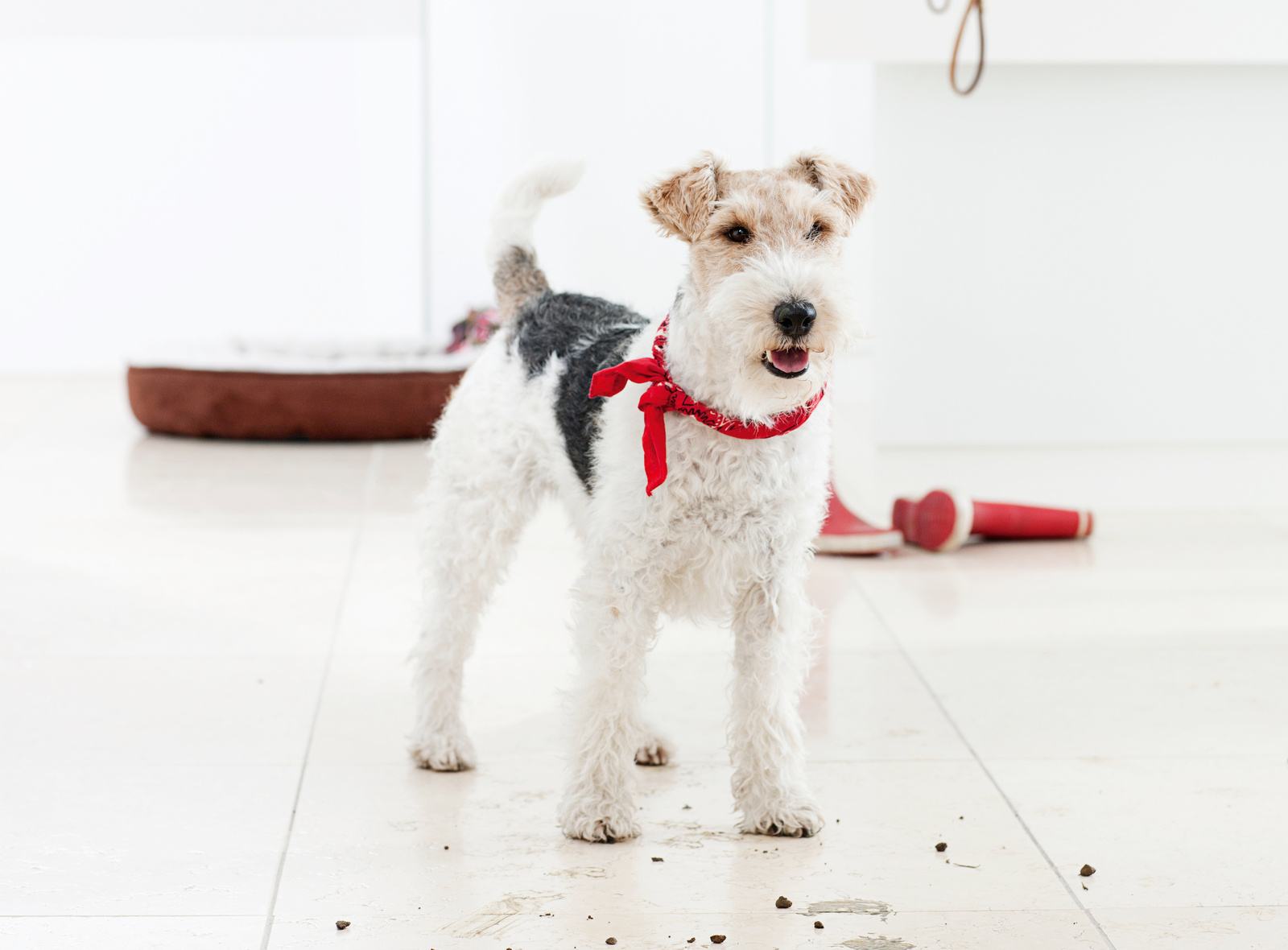
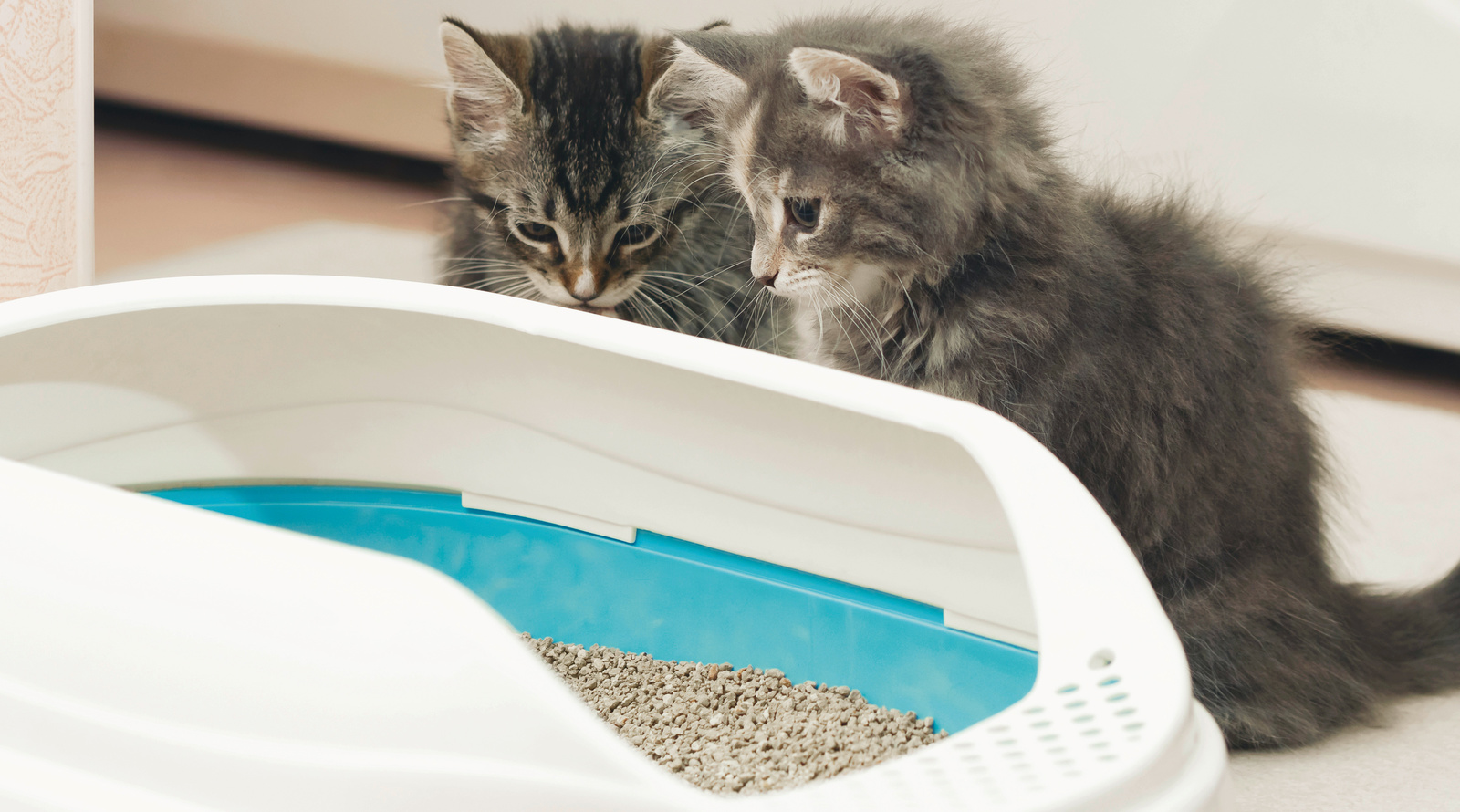
Cat litter? No problem
Cats bury their business – even in the house.
Depending on your cat's temperament and thoroughness, the litter granules can end up scattered all around the litter box. These small granules can be easily removed with a cordless electric broom or vacuum cleaner, without a great deal of effort. This is highly recommended because the granulate can scratch floor coverings if walked on by accident.
If you want to prevent cat litter from being spread around the room in the first place, choose a litter box with a rim that protrudes inwards. This is a highly reliable way of ensuring that cat litter stays inside the litter box.









